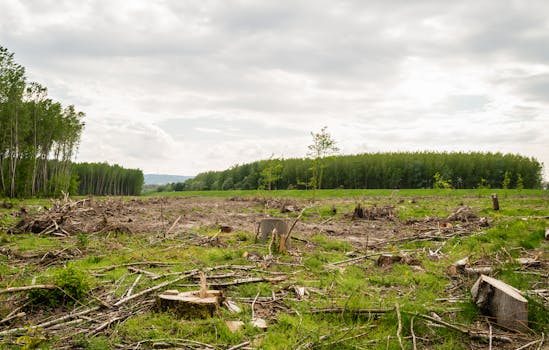
Introduction

The impact of climate change on global ecosystems is profound and far-reaching. As temperatures rise, weather patterns shift, and sea levels climb, the delicate balance of our planet’s ecosystems is being disrupted. This article will delve into the various ways climate change is influencing biodiversity and the health of ecosystems worldwide.
1. Biodiversity Loss

One of the most significant impacts of climate change is the loss of biodiversity. Many species are unable to adapt quickly enough to the rapid changes in their environments. For instance, coral reefs, which are home to thousands of marine species, are suffering from bleaching due to increased sea temperatures. This loss of biodiversity not only affects the species themselves but also the ecosystems that rely on them.
2. Habitat Destruction

Climate change is also leading to habitat destruction. Forests, wetlands, and other vital ecosystems are being altered or destroyed due to changing climate conditions. For example, melting ice in polar regions is not only threatening species like polar bears but also disrupting the entire food chain. Additionally, rising sea levels are flooding coastal habitats, which are critical for many aquatic species.
3. Altered Ecosystem Services

Ecosystem services, such as pollination, water purification, and carbon sequestration, are being compromised by climate change. As temperatures rise and weather patterns become more erratic, these essential services are becoming less reliable. For instance, changes in flowering times can lead to mismatches between pollinators and plants, jeopardizing food production.
4. Climate Refugees

As ecosystems change, so do the communities that depend on them. Climate change is creating ‘climate refugees,’ people who are forced to leave their homes due to environmental degradation. This displacement can lead to increased human-wildlife conflict, as both humans and animals compete for dwindling resources.
Conclusion

The impact of climate change on global ecosystems is undeniable and urgent. Addressing these challenges requires global cooperation and sustainable practices to mitigate further damage. By understanding the interconnectedness of our ecosystems, we can work towards a more sustainable future for all living beings.



